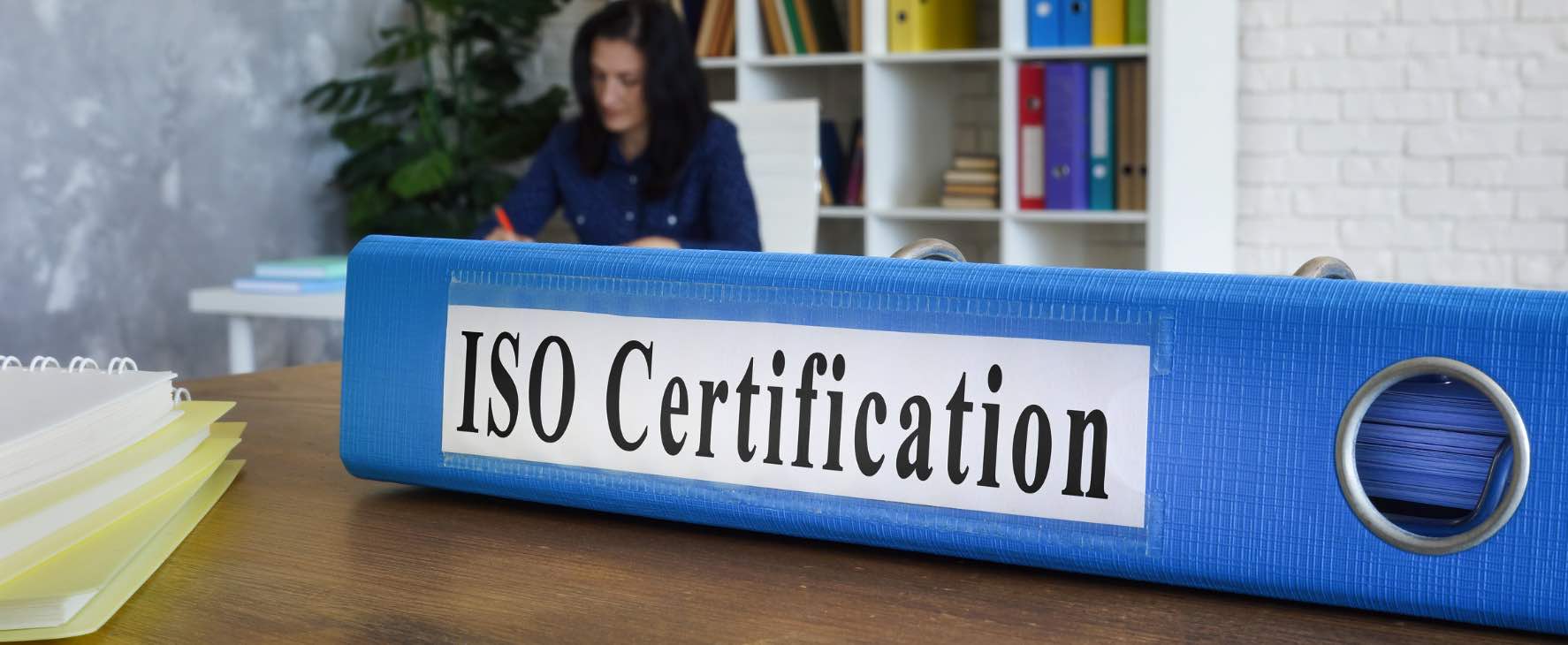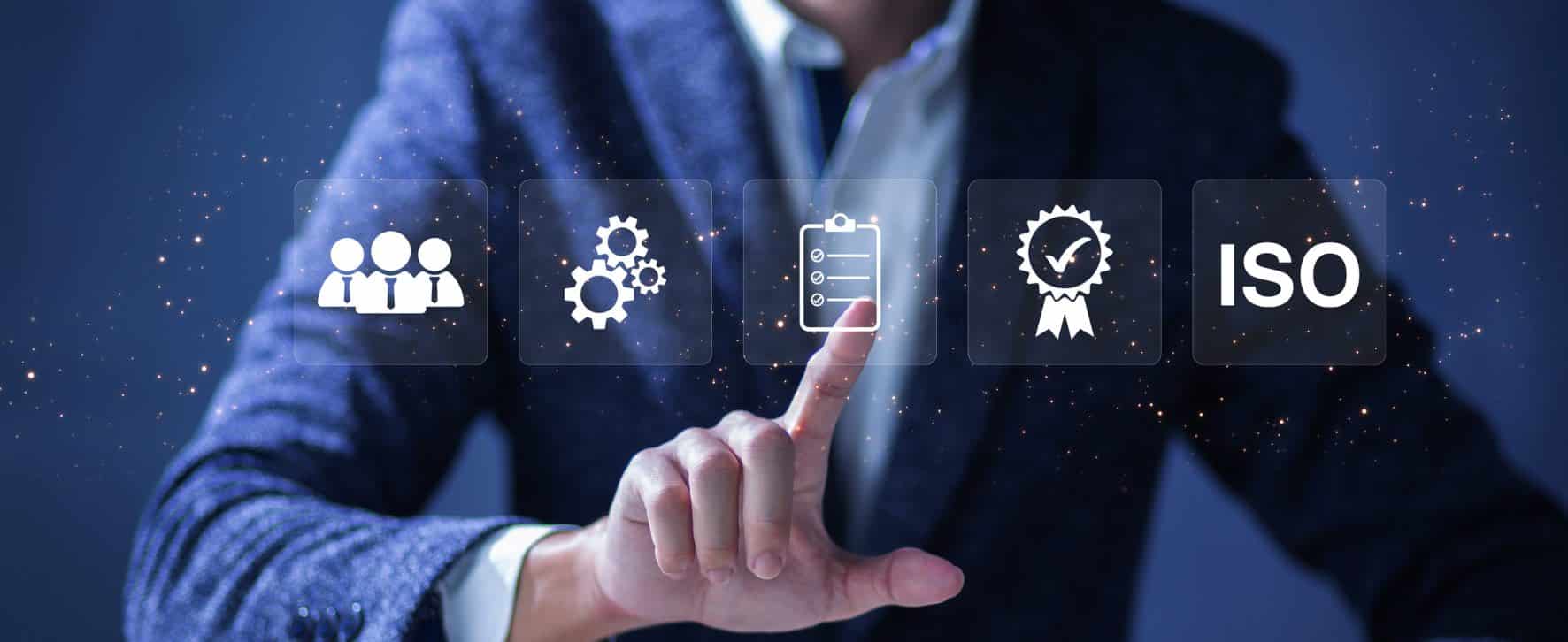Rainer Müller has been running a translation agency for 15 years. With increasing competition, he had to try to stand out from the competition. He did this in two ways: professional specialization and ISO 17100 and ISO 18587 certification. He focused on translations of manuals and Operating instructions from languages like Chinese. Portuguese for the Brazilian market and Hindi to German. Thanks to his proof of competence and ISO certifications, he was able to convince customers and prospects to make a better choice with his translation agency. At the same time, his profits increased because the ISO processes drastically improved workflows.
You can reach us by phone on +41 44 552 66 19 or send an email to Mr. Markus Kukla, head of the certification body. We look forward to hearing from you!
ISO certifications pay off. You save money in the medium and long term and help to convince customers. It's all about this:
- Reduce complaint rates
- Optimize your workflows through the certification process
- Use certifications as a promotional tool
This is how you reduce the complaint rate
The complaint rate of the companies certified by LinquaCert in the years 2017-2019 averaged 0.51% and was therefore at a very low level. The reason for this: Thanks to standardized workflows in every project, fewer mistakes are made - or better: mistakes are recognized early and do not end up in the version for the customer.

ISO 17100 expressly requires a multi-stage review and correction of texts. The four-eyes principle applies, according to which each text should be checked by at least two people. The lower the complaint rate, the lower the internal costs for correcting errors. That makes one
project more profitable, or at least it stays within the scope of the offer. If you budget for correction costs for a project, these will decrease when the requirements of ISO 17100 and ISO 18587 are implemented.
Improve internal processes with ISO 17100
When Rainer Müller first considered certification, he had established workflows but not compared them with the requirements of the ISO standard. Discrepancies were found during a pre-audit and were listed. But his translation service provider agency is not alone in this. When analyzing initial certifications, it is normal for us as auditors to make suggestions for improvement. This is what a pre-audit is for.
Figures from our customers show how quickly an ISO 17100 certificate pays off. All companies certified by LinquaCert demonstrate a high degree of fulfillment of the ISO 17100 requirements with an average of 96.4%. This means that these companies work strictly according to international standards and thus have highly efficient work processes. For the years 2017 and 2018, the percentage values represent approximately normal distributions. In contrast, the distribution in 2019 is steep on one side and shows an accumulation close to the 100% mark. This is an indication of the continuous and successful process improvement of the certified companies.
Where is there the most need for improvement?
If there is lack of compliance with the rules of, If there is an ISO 17100 DIN standard, then for the most part it is always in the same areas. In our statistics it becomes clear that around 80% of these deviations only five standard chapters can be assigned. These are, in descending order:
- Human resources
- Dealing with project-related information
of the customer - Final administrative operations
- Technical and Technological Resources
- Editing
The resources usually lack information on third-party providers and valid proof of competence. At companies like Rainer Müller's, which work a lot with foreign customers, such certificates are not only necessary for formal reasons. Especially new customers from other language areas want to know what skills all employees involved in the project have. They are often impressed when freelance translators are even based in the respective language area.

Invoicing and feedback are very often criticized. There are formal deviations from the offer in the invoices. Here can be reworked quite quickly, in which a comparison of
Invoice and offer is introduced as a process step. The feedback is a little different: Here it is important to implement customer change requests quickly and precisely.
For the technology used, ISO 17100 requires a complete listing of the hardware and software used. ISO 17100 states: “The translation service provider ensures that the technical resources required in all phases of the project are used by everyone, including third-party providers.
When it comes to editing, we sometimes see inconsistent processes where, for example, an intermediate step is skipped. However, ISO 17100 stipulates that editing processes are always complete.
Certificates are an advertising medium
If you want to win new business, then you need to build trust. Rainer Müller found that doors opened faster for customers since he had a certificate. Since ISO 17100 and ISO 18587 are internationally recognized and commonly used, translation competence can be objectively verified. Because the ISO certificate expressly states the scope, for example technical translations in the fields of medicine and finance.
A certificate also helps with acquisition in another way, namely with online searches. When customers search for "translation," they usually get hits from online services. The search term "specialist translation" is more helpful, but it still produces a confusing hit list of 290,000 pieces of content that initially says little about quality and pricing. Consequently, the search needs to be further refined depending on preferences. A combination of the following criteria can be useful:
"Specialist translation" +
- Target language (e.g. "English",
"Portuguese", etc.) - Subject (e.g. "Technology",
"medicine", "law", etc.) - "Certification ISO 17100"
- Region (if content the
has local priority, e.g. "Switzerland" or "Brazil")
As a translation service provider, you can then place various ads via Google Adwords. If you also use the term "ISO 17100 certified" in your meta description of the website, this will be displayed in the so-called snippet - the short text in the result list.
In this way, customers not only find you more easily and quickly, you can also present your skills and the quality of your service better and more successfully. This brings you more inquiries and thus more orders.
So the ISO 17100 certificate pays off twice
For service providers like Rainer Müller, specializing online has also paid off. Through corresponding blog posts and reviews, he was able to search for specialist translations in his field
climb up. For his company, the monitoring and repeat audits (a certificate has a limited term) is an investment that is quite manageable, bringing in new customers and helping to further optimize its processes.
A certification according to ISO 17100 is also possible for small translation service providers (ÜDL) and the costs for this are very low compared to the resulting advantages. You can contact us via our web form, by email at mk@linquacert.com or by phone on +41 (44) 552 66 19. We will then discuss with you the effort required for certification based on the size of your company and make you an individual offer.
You can reach us by phone on +41 44 552 66 19 or send an email to Mr. Markus Kukla, head of the certification body. We look forward to hearing from you!
